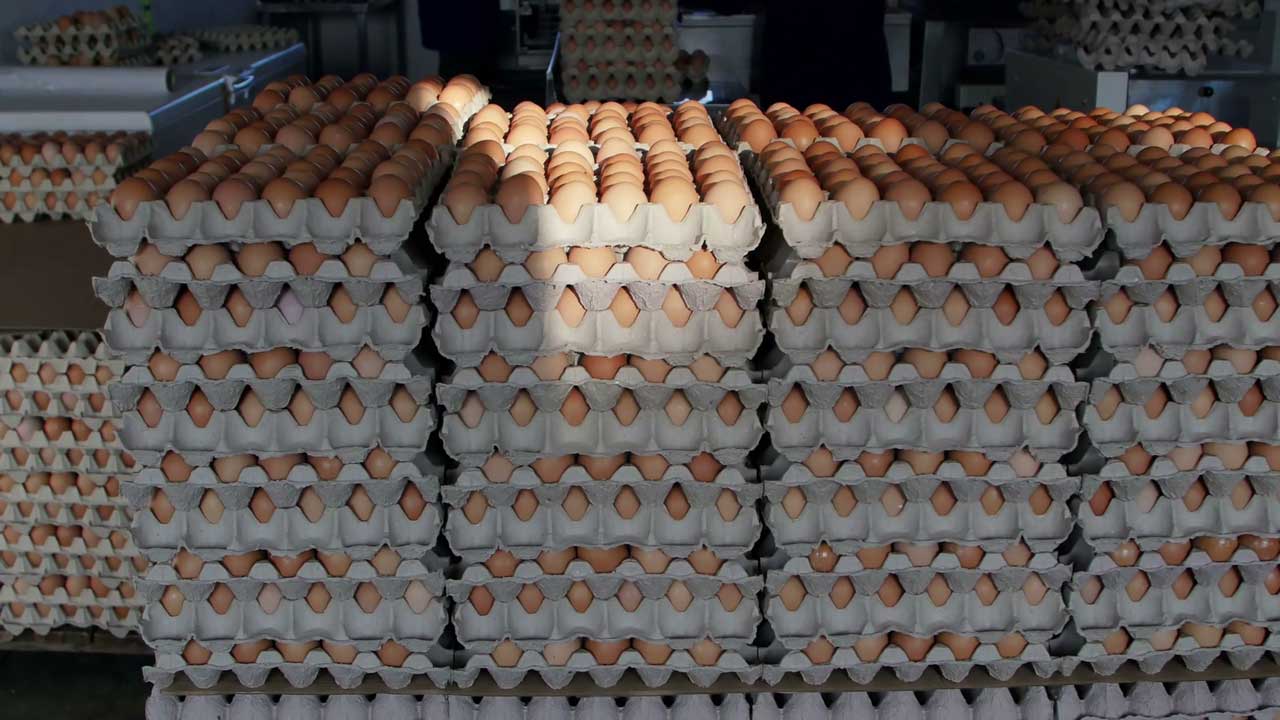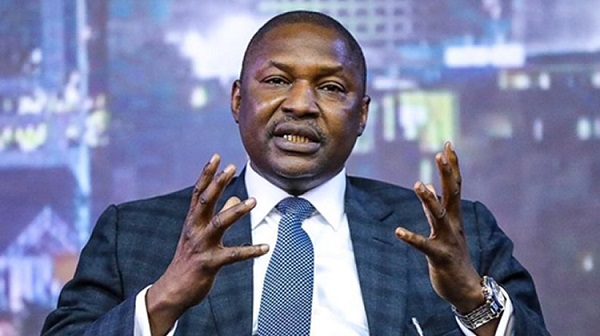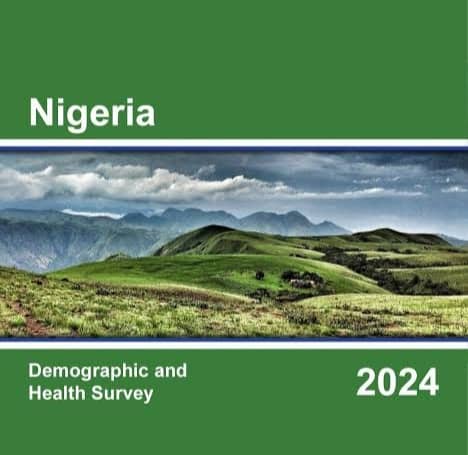News
Consumers fault poultry farmers over reported slash in egg prices

Residents across Lagos State have dismissed claims by the Poultry Association of Nigeria (PAN) that egg prices have been slashed, saying the commodity remains expensive in local markets.
PAN recently announced a 10 per cent reduction in the farm gate price of eggs, from N5,000 to between N4,800 and N5,000 per crate.
However, checks by the News Agency of Nigeria revealed that a crate still sells between N5,500 and N6,500 in many markets, while a single egg goes for about N250.
Mrs. Rose Brownson, a resident of Egbeda, said there had been no drop in prices in her area.
“The cost of eggs has not dropped in recent months; it only gets more expensive. We still buy a crate between N5,800 and N6,000, and a single egg sells for N250. There has been no noticeable change,” she said.
At FESTAC, a wholesaler, Mrs. Esther Ikechukwu, explained that the costs from the farm gate to the point of sale often inflate prices.
“The farm price is N5,100 per crate, but we pay an extra N200 per crate for transportation. By the time it gets to us, it’s about N5,300, and we still incur costs for delivery to our shops.
“I sell at N5,700, while others sell between N6,000 and N6,500,” she said.
Ikechukwu added that costs such as packaging, data for transactions, and cracked egg losses also affect pricing.
“Cracked eggs are sold at N500 for three pieces or N4,500 per crate, and we hardly make any profit from them. Retailers tend to gain more than wholesalers,” she said.
Mr. Oriafo Oseme, a consumer in Alimosho, echoed similar sentiments, saying, “I still bought a crate at N6,000 a few days back.
“This talk of a price slash seems like a myth. If there has been a drop at the farm gates, it should reflect in what we pay.”
A cooked food vendor in Amuwo Odofin, Mrs. Charity Igwe, said her selling price depends on the purchase cost.
“We buy a crate at N5,600 and sell a boiled egg for N250. When the price rises to N6,000, I sell for N300. Most cooked food traders now sell at N300 to break even,” she said.
Despite PAN’s assurances, Lagos residents say the purported reduction has yet to make an impact on their pockets.
News
Washington attack: US orders review of all Green Cards from 19 countries

The United States government has announced a sweeping review of all Green Cards issued to citizens of 19 countries, following Wednesday’s attack on National Guard troops in Washington, D.C.
The Trump administration disclosed the move on Thursday after authorities identified the detained suspect as a 29-year-old Afghan national who had previously worked with American forces in Afghanistan.
According to AfghanEvac, an organisation involved in the resettlement of Afghans after the 2021 Taliban takeover, the suspect was granted asylum in April 2025, not permanent residency.
In a statement on X, the Director of the US Citizenship and Immigration Services (USCIS), Joseph Edlow, said, “I have directed a full-scale, rigorous re-examination of every Green Card for every alien from every country of concern.”
The order had earlier banned nearly all nationals from 12 of those countries, including Afghanistan, from entering the United States.
Here is a full list of countries under the travel ban:
Countries with Full Travel Ban (12)
1. Afghanistan
2. Myanmar
3. Chad
4. Congo-Brazzaville
5. Equatorial Guinea
6. Eritrea
7. Haiti
8. Iran
9. Libya
10. Somalia
11. Sudan
12. Yemen
Countries with Partial Ban (7)
1. Burundi
2. Cuba
3. Laos
4. Sierra Leone
5. Togo
6. Turkmenistan
7. Venezuela
News
EFCC summons ex-AGF Malami

The Economic and Financial Crimes Commission (EFCC) has invited former Attorney-General of the Federation and Minister of Justice, Abubakar Malami, for questioning.
Malami served as Attorney-General and Minister of Justice from 2015 to 2023 under former President Muhammadu Buhari.
Malami announced the development on his Facebook page on Friday, confirming that he had received a formal invitation from the anti-graft agency.
“I would like to inform my family and friends that I have been summoned by the EFCC to provide clarification on certain matters, and as a law-abiding and patriotic citizen, I am determined to honour this invitation without any hesitation,” he wrote.
The former minister reiterated his commitment to the principles of honesty, integrity, and accountability, which he said guided his years in public service.
“I believe in the importance of honesty, integrity, and accountability in governance; these are principles that I have long supported and upheld over the years of my public service,” he added.
Malami also stated that he would keep Nigerians informed of any developments that may arise from the invitation.
News
NDHS: Nigerian regions show huge disparity in spousal earnings

• South South most equal
By Grace Edet
New data from the 2024 Nigeria Demographic and Health Survey (NDHS) has revealed major regional disparities in spousal earnings, showing that most Nigerian wives aged 15–49 earn less than their husbands, despite growing pockets of income equality across the country.
According to figures shared by Statisense on Tuesday, the trend is most pronounced in the North-West, where 941 in 1,000 wives earn less than their husbands, while only 29 in 1,000 earn more. The region also recorded the lowest rate of non-earning husbands, with just 7 in 1,000 women reporting partners with no income.
In contrast, the South South posted the strongest levels of income parity. The region recorded 113 in 1,000 wives earning the same as their husbands, the highest nationwide. It also had the largest share of women earning more than their spouses at 61 in 1,000.
The North East also showed notable shifts. While 30 in 1,000 wives out-earn their husbands, one of the highest shares in the country, the region still reported that 888 in 1,000 women earn less, reflecting wide inequality despite emerging improvements.
The North Central displayed more balanced figures, with 46 in 1,000 women earning more, and 65 in 1,000 earning equally, though 848 in 1,000 wives still fall below their husbands’ income levels.
In the South East, income gaps remain significant but show signs of narrowing. The data shows 57 in 1,000 wives earn more, 82 in 1,000 earn equally, while 775 in 1,000 still earn less than their husbands.
For the South West, 45 in 1,000 wives earn more, and 75 in 1,000 earn the same, but 824 in 1,000 wives still earn below their husbands’ earnings. Only 11 in 1,000 husbands reported having no income.
The NDHS 2024 findings highlight a consistent national pattern: while traditional income structures remain strong, especially in northern regions, the southern zones, particularly the South South, are showing faster shifts toward income equality within households.
Experts say the trend reflects broader economic realities, including rising female participation in formal work, regional differences in literacy levels, and contrasting socio-cultural expectations about household roles.
The full survey continues to shape policy discussions on women’s economic empowerment, labour participation, and regional development priorities.
-

 Art & Life9 years ago
Art & Life9 years agoThese ’90s fashion trends are making a comeback in 2017
-

 Entertainment9 years ago
Entertainment9 years agoThe final 6 ‘Game of Thrones’ episodes might feel like a full season
-

 Business9 years ago
Business9 years agoThe 9 worst mistakes you can ever make at work
-

 Art & Life9 years ago
Art & Life9 years agoAccording to Dior Couture, this taboo fashion accessory is back
-

 Entertainment9 years ago
Entertainment9 years agoThe old and New Edition cast comes together to perform
-

 Sports9 years ago
Sports9 years agoPhillies’ Aaron Altherr makes mind-boggling barehanded play
-

 Entertainment9 years ago
Entertainment9 years agoMod turns ‘Counter-Strike’ into a ‘Tekken’ clone with fighting chickens
-

 Entertainment9 years ago
Entertainment9 years agoDisney’s live-action Aladdin finally finds its stars






zoritoler imol
September 27, 2025 at 8:10 pm
I do like the way you have presented this specific challenge plus it does offer me personally some fodder for consideration. On the other hand, because of what I have personally seen, I only hope as the responses stack on that folks remain on issue and not get started on a soap box of the news of the day. All the same, thank you for this exceptional point and though I do not agree with this in totality, I respect the perspective.